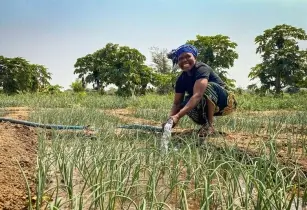The UN World Food Programme’s (WFP) activities in Malawi between 2015 and 2020 have helped communities adapt to a changing climate and enabled them to break out of the cycle of hunger, according to a recent independent evaluation by Information, Training and Development (ITAD)
The evaluation highlights that 95% of participating households reported increased crop production. This was after they implemented climate-smart agriculture, with 75% of households harvesting over 200 kg of maize in 2020 compared to 43% in 2019. In addition, 90% of the participants reported being better prepared to face natural disasters.
WFP’s food assistance for assets (FFA) interventions have been supporting 128,000 households in the districts of Balaka, Blantyre, Chikwawa, Machinga, Mangochi, Nsanje, Phalombe and Zomba. Under FFA, families build and maintain community gardens and irrigation systems and reforest land to support their livelihoods, create healthier environments and reduce the impacts of climate shocks.
“Now more than ever, in the wake of the pandemic and the increasingly devastating consequences of climate change we must continue empowering communities,” said Marco Cavalcante, WFP’s country director and representative in Malawi.
WFP provides assistance using food or cash transfers to cover immediate food needs while asset creation builds community resilience over time. As food security improves, communities continue building assets but without food or cash transfers. WFP also supports them through radio weather forecasts, community-based micro-credit schemes and crop insurance.





